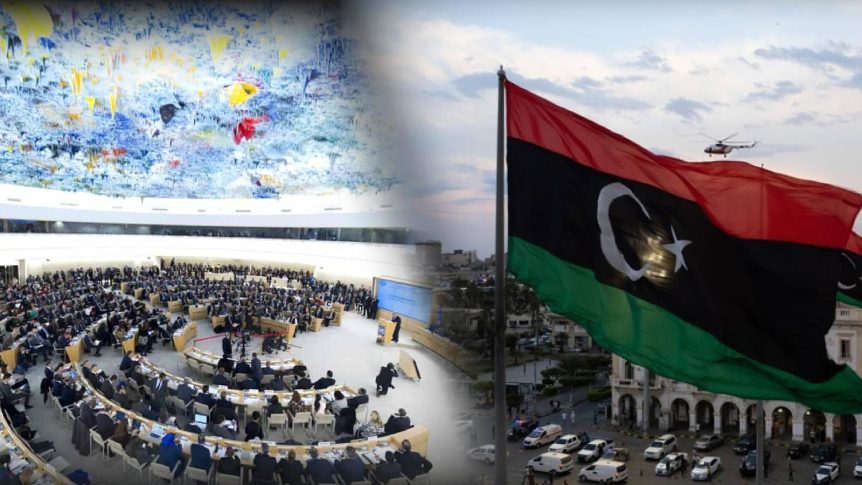A resolution on Libya is due to be debated during the ongoing 56th Session of the United Nations Human Rights Council (the Council). One year ago, the Council disbanded a UN Fact Finding Mission (FFM) on Libya and replaced it with a narrow “technical capacity building” mechanism. This approach ignored the FFM’s primary recommendation to the Council to establish an international investigation to combat impunity for grave violations of international law in the country, including war crimes and crimes against humanity.
According to Mayssa Achek, International Advocacy Officer for the Cairo Institute for Human Rights Studies (CIHRS) in Geneva, “Time is running out to ensure Libya does not become a permanently failed state ruled by warlords, armed groups and religious extremists. Accountability is absolutely necessary. Doing away with the only UN investigation into international crimes in Libya has only fuelled the cycle of violence; a cycle that has made progress towards stability, rule of law and democratic governance all but impossible.”
A report on “capacity building” activities in Libya submitted to the Council by the Office of the High Commissioner for Human Rights on 3 June, highlights the continued deterioration of the human rights situation in Libya, due in large part to pervasive impunity in the country. The report points out that the UN was unable to carry out a large percentage of its capacity building activities due to threats of violence or restrictions imposed by local authorities on UN activities.
This comes two months after the Head of the UN Mission to Libya resigned due to a “lack of political will and good faith” that has created “no room for a solution for the future.” It also follows the International Criminal Court’s announcement on 14 May that they will end their investigations into crimes committed in Libya in 2025.
In a letter sent to UN member states on 20 June, CIHRS joined with Libyan and international civil society to call for the re-establishment of an international investigation on Libya at the Council. The letter stresses that despite an overwhelming amount of evidence that grave, widespread human rights violations have been and continue to be committed throughout Libya, to date not a single commander or head of an armed group has been held accountable for these acts.
On 24 June, speaking at an event organised in parallel to the UN Human Rights Council session, Libyan and international human rights organizations outlined the urgent need for the UN to revive efforts to ensure accountability for crimes committed in Libya. The event entitled “Libya: Reviving Hope” was attended by state delegations to the United Nations and UN experts.
Libya and the African group of states are expected to present to the Council a draft resolution in the coming days. During the event, civil society representatives called on UN member states to insist that any resolution on Libya creates a strong investigation into ongoing crimes in the country.
Ms. Achek added, “The failure of the UN Human Rights Council to maintain a robust investigation, including by collecting evidence, has left Libyan judges, prosecutors, lawyers, human rights defenders, and rights groups vulnerable to violence and other attacks by government affiliated armed groups and religious extremists. In order to isolate and intimidate those pursuing accountability for rights violations, these factions continue to falsely accuse many Libyan civil society actors of being spies or defaming religious values. UN member states have an obligation to ensure protection for these and other victims, and to pursue accountability for those carrying out these acts. Ignoring the crisis will only make it worse.”
Share this Post

